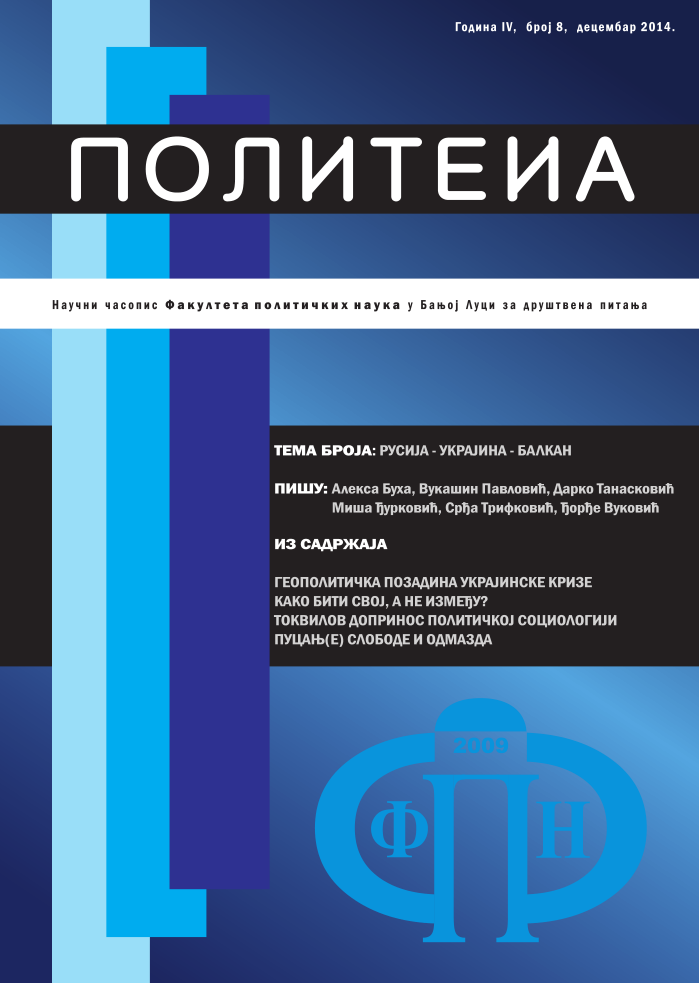Položaj slovenskih etničkih zajednica u Austro-Ugarskoj - povod za izbijanje krize
Position of Slavic ethnical communities in Austria-Hungary: Occasion for beginning of crisis
Author(s): Dragan Đukanović, Jelica GordanićSubject(s): Politics / Political Sciences, Ethnohistory, Political history, International relations/trade, 19th Century
Published by: Fakultet političkih nauka Univerziteta u Banjoj Luci
Keywords: Austria-Hungary; ethnic groups; Croats; Serbs; Czechs; Poles; Ukrainians; Slovenians; Bosnia and Herzegovina; Bohemia; Galicia;
Summary/Abstract: Austro-Hungarian Monarchy originated as a result of compromise between Austria and Hungary in 1867 after several unsuccessful constitutional reforms in Habsburg Monarchy. Austro-Hungarian Monarchy was ethnically and religiously diverse. Total population of 51.3 million consisted of 7 religious groups and 12 demographic and ethnic groups. This paper considers the position of Slavic ethnic groups in Austria-Hungary - Croats and Serbs in Bosnia and Herzegovina, Czechs in Bohemia and Moravia, Poles in Galicia and Bukovina, Ukrainians in Galicia and Slovenians. Depriving the members of listed ethnic communities of their basic human rights led to weakening of Austro-Hungarian Empire.
Journal: Politeia - Naučni časopis Fakulteta političkih nauka u Banjoj Luci za društvena pitanja
- Issue Year: 4/2014
- Issue No: 8
- Page Range: 177-192
- Page Count: 16
- Language: Serbian

